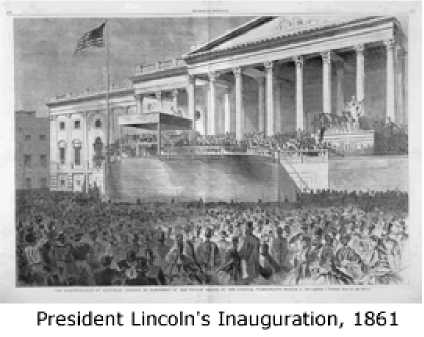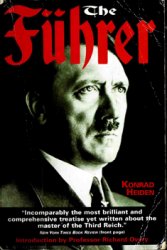As predicted, the outcome of the election led to crisis. Immediately upon learning of the election results, the state of South Carolina, which had been in the forefront of the agitation on the slavery question, called a special convention to consider the issue of secession. The secessionists staked their case on fears that the institution of slavery would be attacked by the "Black Republicans," and that their wives and daughters would not be safe if the slaves were freed. The Charleston convention unanimously adopted an ordinance which, having reviewed the issues confronting the slave states, and claiming that the free states had not upheld their contractual obligations under the Constitution, declared:
We, therefore, the people of South Carolina, by our delegates in convention assembled, appealing to the Supreme Judge of the world for the rectitude of our intentions, have solemnly declared that the Union heretofore existing between this state and the other states of North America is dissolved; and that the state of South Carolina has resumed her position among the nations of the world. (See the entire Ordinance in the Appendix.)
Thus, on December 20, 1860, South Carolina left the Union. By February1861 the six other states around the edge of the South—Georgia, Florida, Alabama, Mississippi, Louisiana, and Texas-had also seceded. President Buchanan, feeling with some justification that he had not created the situation, saw no immediate way to resolve it. Congress attempted to find possibilities for compromise, including the introduction of the 13th amendment to the Constitution which would have guaranteed permanent existence of slavery in states where it
The 15 Southern states had 120 out of 303 electoral votes; 152 were needed to win.
Already existed. Given the decades of angry confrontation between the North and South, it was very unlikely that a compromise had any real possibility of being accepted by either side. Some historians have offered the opinion that if the votes on secession had been thrown open to the entire Southern people, it might not have passed in some of the states that did leave the Union. But in the seven states that seceded before Lincoln's inauguration, the vote for secession probably reflected popular opinion.77 (Four slave states—Missouri, Kentucky, Maryland and Delaware—did not secede in any case.)

On March 4, 1861, Abraham Lincoln was inaugurated as president. Armed soldiers were positioned on rooftops between the White House and the Capitol as Lincoln rode in an open carriage with outgoing President James Buchanan.
In his inaugural address, he reiterated his position that, "I have no purpose, directly or indirectly, to interfere with the institution of slavery in the States where it exists. I believe I have no lawful right to do so, and I have no inclination to do so." He asserted his belief that the Constitution was perpetual and that secession was therefore illegal. Declaring that the Union would continue and all federal services would continue to operate, he claimed that he offered no threat to the Southern, seceded states. His address was, however, seen by many in the South as a direct threat to their sovereignty.
In his closing words, Lincoln appealed to his countrymen to be patient:
In your hands, my dissatisfied fellow-countrymen, and not in mine, is the momentous issue of civil war. The Government will not assail you. You can have no conflict without being yourselves the aggressors. You have no oath registered in heaven to destroy the Government, while I shall have the most solemn one to "preserve, protect, and defend it."
I am loath to close. We are not enemies, but friends. We must not be enemies. Though passion may have strained it must not break our bonds of affection. The mystic chords of memory, stretching from every battlefield and patriot grave to every living heart and hearthstone all over this broad land, will yet swell the chorus of the Union, when again touched, as surely they will be, by the better angels of our nature.




 World History
World History









